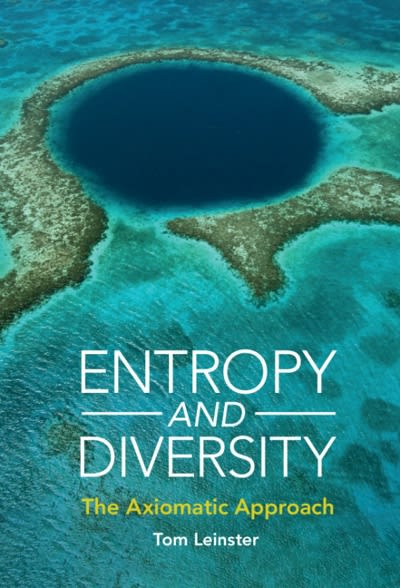Question
The professor of an ISyE class may end the lecture early, on time, or late on any given day. Students have noticed that they can
The professor of an ISyE class may end the lecture early, on time, or late on any given day. Students have noticed that they can forecast the probability of ending the class on time based on the ending time of the previous lecture. Experience shows that after ending a lecture early, the Professor tries to make up the time by running late the next class 8 times out of 10, the rest of the time she follows early lectures with on-time lectures (she never follows an early lecture with another early lecture). On the days that classes end on time, students believe that the next class will get out early with a probability of 0.3; otherwise there is equal probability the next class will end on time or late. Following days when the class runs late, 6 out of 10 classes are late again. The Professor never lets the class out early following a late class.
(a) (3 points) Indicate the period of each state.
(b) (1 points) Is this Markov Chain irreducible? Why or why not?
(c) (3 points) Compute the long-run proportion of the time that the class is going to be early, on time, and late, respectively.
(d) (1 point) If class ends early today, what is the expected number of classes before class ends early again?
(e) (3 points) Suppose that every time class ends early, it ends 5 minutes early and every time class ends late, it ends 5 minutes late. If lecture goes from 11:00 AM - 12:15 PM, what time does lecture end, on average?
Step by Step Solution
There are 3 Steps involved in it
Step: 1

Get Instant Access to Expert-Tailored Solutions
See step-by-step solutions with expert insights and AI powered tools for academic success
Step: 2

Step: 3

Ace Your Homework with AI
Get the answers you need in no time with our AI-driven, step-by-step assistance
Get Started


